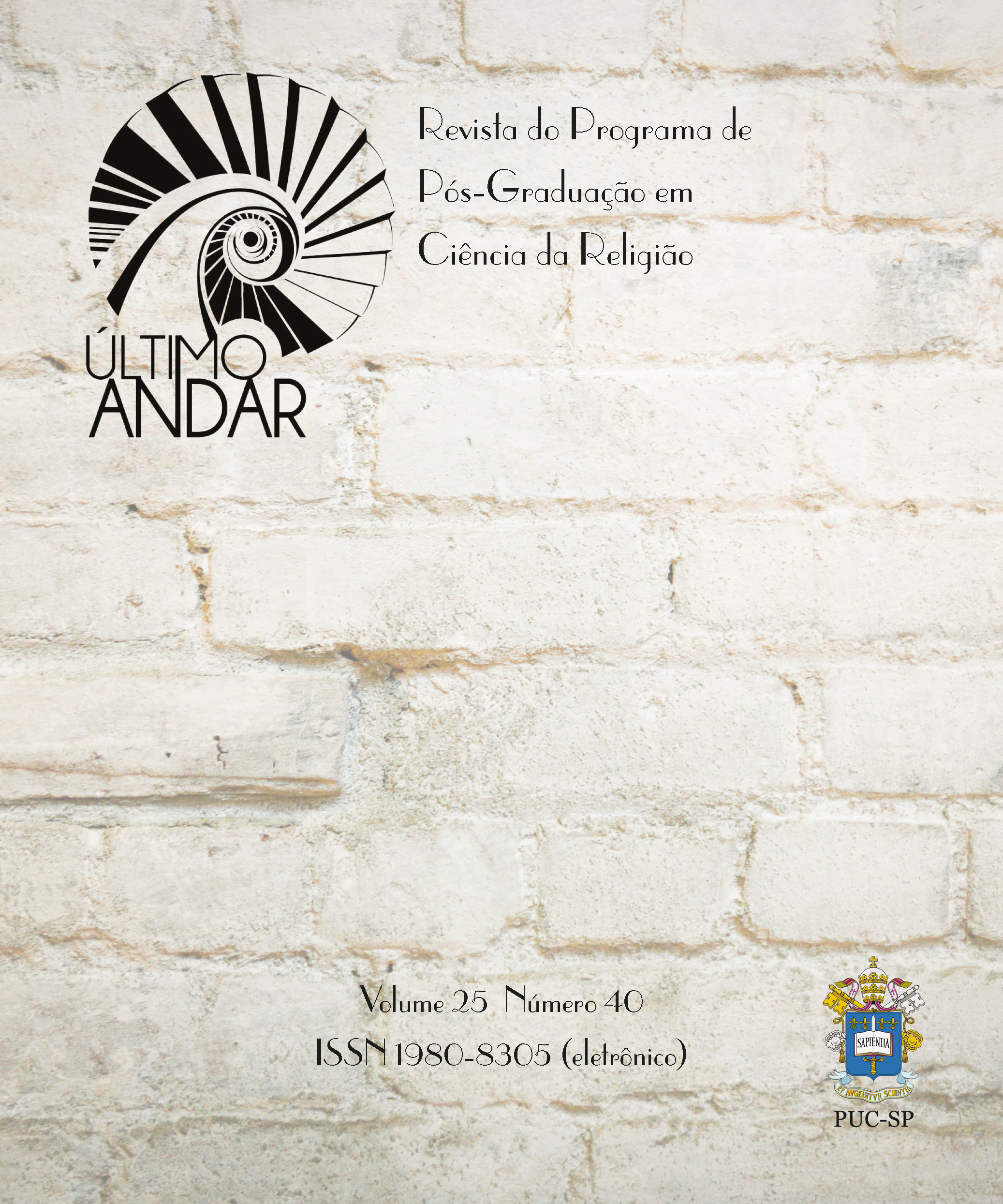Religion and Meaning
between "The Myth of Sisyphus" and "In search of meaning
DOI:
https://doi.org/10.23925/ua.v25i40.57312Keywords:
Religion, absurdity, the meaning of life.Abstract
Religion gives meaning to human existence. This statement is a kind of common ground among scientists of religion, philosophers who deal with religion and psychotherapists with an existential approach. However, authors such as Grondin (2012) recognize that outside the religious scope one can also make experiences of meaning. Among the various answers that can be given by religion and philosophy, there is the so-called current of absurdity, whose most efficient formulator and disseminator was Albert Camus, even though he was influenced by exponents such as Nietzsche, Kierkegaard and Sartre himself. Unlike Camus, who did not see any meaning in human existence but who did not therefore propose suicide, psychiatrist Viktor Frankl understood the crux of human life exactly as the search for meaning. This article aims to compare the thoughts of Camus and Frankl from their best-known essays on existence. “The myth of Sisyphus”, Camusian; and “In Search of Meaning”, by Frankl. Although Camus presents an individualistic understanding of meaning and the absence of meaning, his reflection is still expressive for today. On the other hand, Frankl shows openness to the influences that society exerts on the person. This perspective of Frankl, in line with the sociologists Berger and Luckmann, turns out to be broader than that of Camus.
References
BERGER, Peter; LUCKMANN, Thomas. Modernidade, pluralismo e crise de sentido:a orientação do homem moderno. 3. ed.Petrópolis-RJ: Vozes, 2012.
BISPO, Milene Fontes de Menezes; ROSA, Roberto Sávio.O Mito de Sísifo: A decisão de viver ou suprimir a vida. Revista de Filosofia da UESB, 2013. Disponível em: http://periodicos2.uesb.br/index.php/filosofando/article/view/2134. Acesso em: 2 ago. 2020.
CAMUS, Albert. O mito de Sísifo. Disponível em: http://bibliotecadigital.puc-campinas.edu.br/services/e-books/Albert%20Camus-2.pdf. Acesso em: 13 jun. 2020.
FOGEL, Gilvan. Que é filosofia? Filosofia como exercício de finitude. Aparecida-SP: Ideias e Letras, 2009.
FRANKL, Viktor E. Em busca de sentido. 44. Ed. São Leopoldo-RS: Sinodal; Petrópolis-RJ: Vozes, 2018.
GRONDIN, Jean. Que saber sobre filosofia da religião. Aparecida-SP: Ideias e Letras, 2012.
HARRIS, Sam. Despertar: um guia para a espiritualidade sem religião. São Paulo: Cia das Letras, 2015.
RABUSKE, Edvino A. Antropologia filosófica. 8. Ed. Petrópolis-RJ: Vozes, 2001.
REALE, Giovanni. Pré-socráticos e orfismo. Nova edição corrigida. São Paulo: Loyola, 2009.
SIMÕES, Antônio et al. O sentido da vida: contexto ideológico e abordagem empírica. Revista Psychologica, 2009. Disponível em: https://impactum-journals.uc.pt/psychologica/article/view/1647-8606_51_8. Acesso em: 15 ago. 2020.
ZILLES, Urbano. Filosofia da religião. São Paulo: Paulinas, 1991.
ZILLES, Urbano. Antropologia teológica. São Paulo: Paulus, 2011.
Downloads
Published
How to Cite
Issue
Section
License
Copyright (c) 2022 Último Andar

This work is licensed under a Creative Commons Attribution-NonCommercial 4.0 International License.
The Authors maintain the copyright and grant the journal the right to first publication, with the work simultaneously licensed under the Creative Commons Attribution License that allows the sharing of the work with acknowledgment of authorship and initial publication in this Journal.
Authors are authorized to assume additional contracts separately, for non-exclusive distribution of the version of the work published in this journal (eg, publishing in institutional repository or as a book chapter), with acknowledgment of authorship and initial publication in this journal.
Authors are allowed and encouraged to publish and distribute their work online (eg in institutional repositories or on their personal page) at any point before or during the editorial process, as this can generate productive changes, as well as increase impact and citation of the published work.


